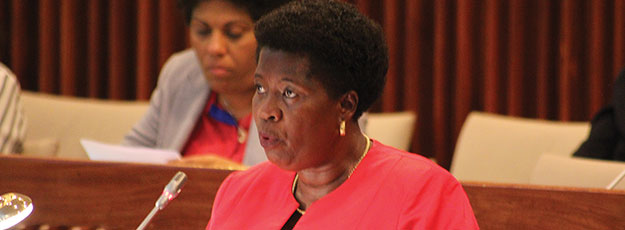Mozambique: Frelimo engages with striking teachers in Chimoio
US$17M per year: Provision of the school book “a complex process which comprises several steps”

After about three months of waiting, 1st and 2nd grades student in Mozambique have finally begun to familiarize themselves with their free textbooks. The wait is not surprising, being a regular occurrence at the start of every academic year.
This time, however, the wait has been longer because schools opened early (January 20) compared to other years. The MDM therefore took to the stand on the occasion of the government’s visit to the Assembly of the Republic to raise the issue of the production and distribution of school books.
And, in the person of Minister of Education and Development Conceita Sortane, the government conceded that the process of designing, writing, editing, printing, distributing and conserving school books was “complex”.
The complexity derives not only from the long production chain, but also from the multiple stakeholders (such as government, funders, publishers and the national distributor) and the large numbers. About 14 million 1st to 7th grade books are purchased annually for about six million students.
The costs are estimated at US$17 million, funded by the 11 partners of the Education Sector Support Fund. One of the partners of the fund is the World Bank, so the entire procurement process follows the rules of that financial institution.
In order to “nationalize” the process, the Functional Procurement Supervision Unit and the Administrative Court also intervene. As a result, Sortane concluded, it was a “clean and transparent” process, where national and international competitors had “free access” to compete.
For the selection of books distributed free of charge, the Ministry launches tenders to which national and international publishers submit proposals. The book, selected for the best combination of content and financial proposal, is adopted for a period of five to seven years.
“As part of the curriculum review, first-grade books are written by the Ministry of Education and the second book continues to be from the publishers, but it is expected that, from 2018, that will also be written by the Ministry,” the minister explained.
For Grade 3 to 7 books, including teacher manuals, the ministry orders the necessary quantities from the publishers who own the titles. This year, the government bought just over 15 million books.
First and 2nd grade books are replaced every year, because they are also notebooks that the pupils write in. Forty percent of 3rd to 7th grade books are replaced every year.
Since 2013, the distribution of school books has involved private companies contracted by the Ministry of Education as well as the National School Material Distributor (Diname).












Leave a Reply
Be the First to Comment!
You must be logged in to post a comment.
You must be logged in to post a comment.